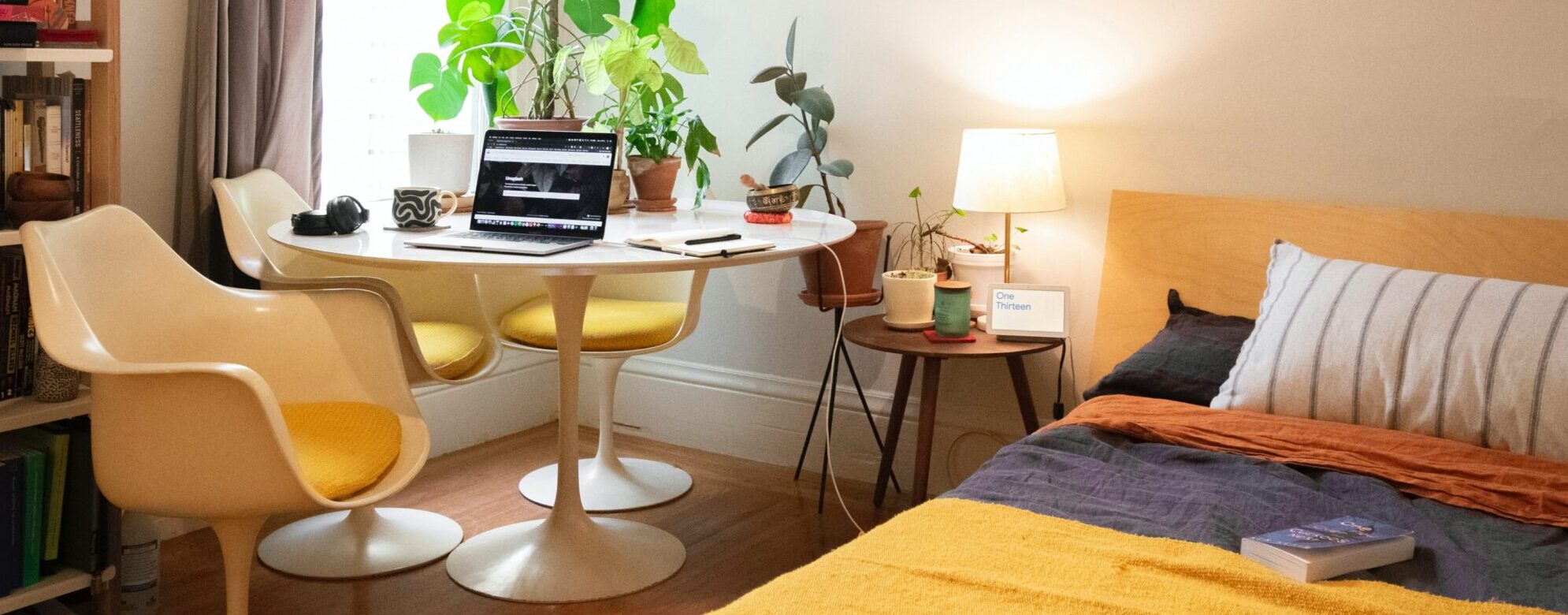With so many pulls on our time and energy, being a productive blogger is a key ingredient to growing a successful history blog and staying focussed. I’ve achieved remarkable results by using this rule. Ready? Make it obvious.
**This post contains affiliate links, which means I receive a small commission. I would never recommend products I do not use or do not believe would benefit your history blogs.**
Six months ago after listening to an inspiring podcast episode I bought Atomic Habits by James Clear. He believes tiny changes can help you build good habits and break bad ones with remarkable results. Clear sets out four laws to do this and the first is ‘Make it obvious.’ Here, I want to share his teachings and show how it can help you build momentum and achievement through the real-life ways I’ve applied them to my blogging and well, life! Here goes…
Do you know your everyday good and bad habits? It’s time to make a list.
Many of the positive but also negative things we do are deeply engrained in us. Some can become automatic and mindless as we do them over and over again. So, the first thing is to create awareness around our behaviour to know what truly needs to change.
Clear suggests creating a daily habits list, without analysis just pure observation, as soon as you wake up. But, you could just apply this to your blogging time. Then, you put next to each one whether it is a good, bad or neutral habit. The test for each one is does it make you effective.
On my list I discovered, I check my phone as soon as I wake up. Why? Because, it is my morning alarm and right next to my bed as I fall asleep listening to podcasts. As I pick my phone up in a pretty sleepy state, it shows me notifications. This tempts me to open apps like the BBC News, email accounts and social media. Often my mind starts racing, I get stressed or it just exposes me to negativity – all before I’ve had a cup of tea. And, speaking of making tea, I scored this as a bad habit too. I use the process, several times a day, to physically take me away from my desk and finishing that blog post or recording that video message for Facebook.
Once you have scored your list be on the lookout and challenge them, verbally if it helps. Now, when I find myself checking my phone I say “This can wait” and I’ve turned off notifications.
Why clarity wins over inspiration every time.
Have you ever told yourself “I’m going to blog more” or “I’m going to get 100 new followers a month.” Clear suggests that without specific details like when and where, you’re basically leaving your success up to chance hoping you’ll remember to do it or feel motivated at some point. What is required instead is clarity through an implementation intention. The formula looks like this…
‘I will [behaviour] at [time] in [location]‘
In practice, for me it looks like this….
‘I will write a caption for Instagram at 8:30pm in bed on my phone’
What I love is you don’t need to wait for inspiration or creativity to just happen and there is no decision required you have a plan and you follow it.
Being specific also stops distractions creeping in. You know what you should be doing so it’s harder to get derailed.
If you struggle with this Clear suggests ‘stacking’ it with a positive habit you already do to in essence set you off. For example,
‘When I sit at my desk at 6:30pm ready to blog I will write down the three prioritises for the session. I will then open my laptop.’
‘After I have made a cup of coffee at 11:00am I will put three throwback images into my Canva template at the kitchen table’
Related Link: Struggling to History Blog? Try these 7 Keys to Maintain Your Focus
Motivation is over-rated
Do you get home and change into comfortable clothes? Do you keep your laptop in a draw? Do you keep fruit and vegetables hidden in a cupboard then forget about them?
“Environment is the invisible hand that shapes human behaviour.”
James Clear
Did you know the most powerful of all our senses is sight? This means a small change in what you can see can lead to a big change in what you do.
Clear recommends being the architect of your own environment and to surround yourself with productive cues. For example, I put a book on my pillow so I read it. I keep a notepad and pen in the kitchen to capture ideas. I have a whiteboard of tasks on my fridge (which I go in a lot : ) I line up all the health foods and vitamins I need to take in the day.
Our environment is also more than objects. Clear argues our relationship with our environment can also affect productivity. For example, my living room is where I watch box sets like The West Wing and The Blacklist with nibbles. It is where I switch off and relax. If I go in there I’m not going to be in ‘work mode’ or remotely creative. I can work at the kitchen table (although that’s near that distracting fridge) and in my little office.
Clear suggests if you’ve got in a rut or want to start a new positive habit – mix it up a bit to shed any environmental baggage. Try a different layout in the room, a coffee shop (when open) or a park bench.
Cut bad habits off at the source.
The biggest relationship challenge is definitely our phones. I would say I don’t even use mine primarily to call people. It is where I listen to books and podcasts, manage 4 email accounts, read the news, order stuff, text for work and fun, post on social media and much more. It’s a nightmare for my productivity and one I have to cut off at the source.
I have changed my relationship with my phone in that I have created a system where I don’t need it to supplement what I am doing. What Clear wants us to do here is not make it obvious but make it invisible by reducing exposure to the cue.
For example, I’m writing this at my kitchen table with everything I need to complete this post. As, there is nothing relating to this post on my phone – notes, images etc… it is having a break from me and me from it in the other room on silent. I also use the Pomodoro Technique (another highly effective time-saving tool) but during the permitted little breaks I do not look at my phone as I know it sends me down a digital rabbit-hole. In short, I have made my phone invisible.
So, that’s a run down and review of the 1st Law to build good habits. Now it’s your turn to look at your daily habits and environment and ask yourself if they’re helping or hindering the goals you have for your history blog.
If any of these tips helped you I highly recommend reading Atomic Habits by James Clear as there are so many more you can apply to blogging and if you want extra help managing your time effectively check out my Ultimate History Blogging Planners too.




